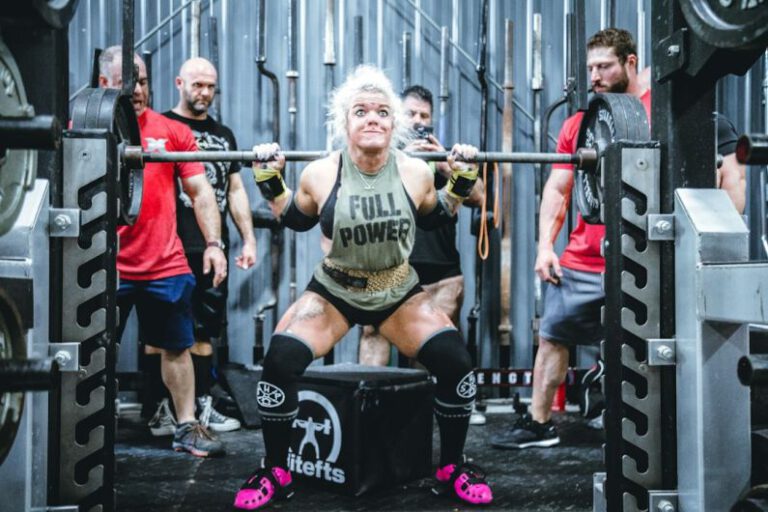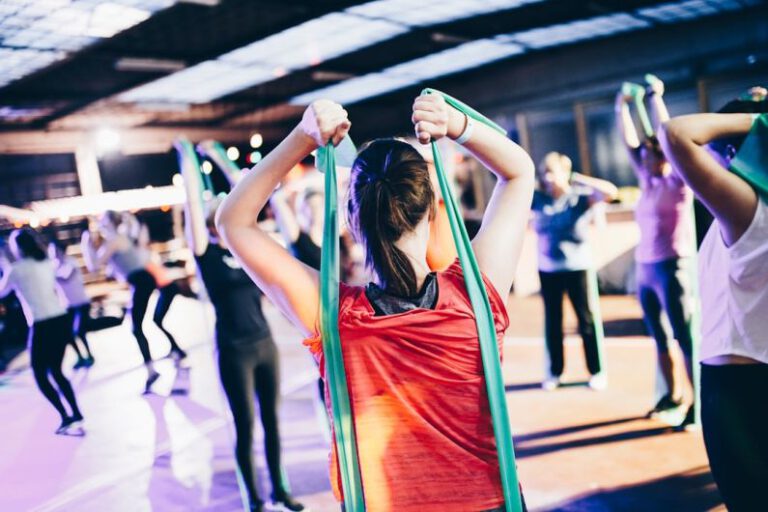The Benefits of Functional Fitness Training
Functional fitness training has gained popularity in recent years for its practical approach to physical fitness. Unlike traditional gym workouts that focus on isolated muscle groups, functional fitness training emphasizes movements that mimic real-life activities. This form of exercise aims to improve overall strength, flexibility, balance, and coordination, making it ideal for individuals looking to enhance their physical capabilities beyond the gym. From athletes to older adults, functional fitness training offers a wide range of benefits that can positively impact daily life.
Enhanced Functional Strength
Functional fitness training targets multiple muscle groups simultaneously, helping individuals develop strength that translates to everyday activities. By engaging in movements that involve pushing, pulling, lifting, and twisting, participants can improve their ability to perform tasks like carrying groceries, lifting children, or even climbing stairs with greater ease. This functional strength not only enhances efficiency in daily activities but also reduces the risk of injuries by improving overall body mechanics.
Improved Balance and Coordination
Balance and coordination are essential components of functional fitness training. By incorporating exercises that challenge stability and proprioception, individuals can enhance their ability to control body movements and maintain equilibrium in various situations. Improved balance and coordination not only reduce the risk of falls but also enhance athletic performance and overall agility, making functional fitness training beneficial for individuals of all ages and fitness levels.
Increased Flexibility and Range of Motion
Flexibility plays a crucial role in functional fitness training as it allows individuals to move more freely and efficiently. By incorporating dynamic stretches and mobility exercises, participants can improve their range of motion, reduce muscle stiffness, and prevent injuries related to poor flexibility. Increased flexibility not only enhances performance during workouts but also promotes better posture and joint health, leading to improved overall physical function.
Functional Core Stability
A strong core is essential for maintaining proper posture, stability, and balance in daily activities. Functional fitness training places a strong emphasis on core strength by incorporating exercises that engage the abdominal muscles, lower back, and pelvis. By developing core stability, individuals can improve their overall body alignment, reduce the risk of back pain, and enhance functional movement patterns required for various tasks. A stable core serves as the foundation for strength and power in both physical activities and everyday movements.
Practical Application to Daily Life
One of the key benefits of functional fitness training is its direct application to real-life scenarios. The movements and exercises performed in functional training sessions mirror the actions required in daily activities, such as bending, lifting, twisting, and reaching. By training the body to move more efficiently and effectively in these functional patterns, individuals can experience improved performance in tasks both inside and outside the gym. Whether it’s carrying groceries, playing with children, or participating in sports, functional fitness training equips individuals with the physical capacity to handle diverse challenges.
Injury Prevention and Rehabilitation
Functional fitness training is not only beneficial for injury prevention but also serves as an effective tool for rehabilitation. By focusing on functional movements that mimic real-life activities, individuals can address muscular imbalances, improve joint stability, and correct movement dysfunctions that contribute to injuries. Additionally, functional training helps individuals build resilience and adaptability in their movements, reducing the likelihood of overuse injuries and enhancing overall physical durability.
Enhanced Athletic Performance
Functional fitness training is highly beneficial for athletes looking to improve their performance in specific sports or activities. By incorporating functional movements that mimic the demands of their sport, athletes can enhance their strength, power, agility, and endurance in a way that directly translates to their performance on the field or court. Functional training helps athletes develop sport-specific skills, improve their reaction time, and reduce the risk of injuries by preparing their bodies for the dynamic demands of competition.
The Mind-Body Connection
Functional fitness training promotes a holistic approach to physical fitness by emphasizing the integration of mind and body. By focusing on functional movements that require mental engagement and body awareness, individuals can enhance their proprioception, coordination, and cognitive function. The mind-body connection fostered through functional training not only improves physical performance but also enhances mental clarity, focus, and overall well-being. By training the body to move with intention and mindfulness, individuals can experience a deeper sense of connection between their physical and mental capacities.
In conclusion, functional fitness training offers a comprehensive approach to physical fitness that extends beyond the confines of traditional gym workouts. By targeting functional movements, improving strength, balance, flexibility, and coordination, individuals can enhance their overall physical capabilities and performance in daily activities. With a focus on practical application, injury prevention, rehabilitation, athletic performance, and the mind-body connection, functional fitness training provides a versatile and effective way to improve both physical and mental well-being. Whether you’re an athlete looking to enhance your performance or an older adult seeking to maintain independence and functional mobility, functional fitness training offers a wide range of benefits that can positively impact your quality of life.






